Contact Yecla Tourist Office
Click Here
To contact Jumilla Tourist office please use the secure enquiry form provided below.
Contact Yecla Tourist Office on +34 968 75 41 04
Contact Yecla Tourist Office
Click Here
To contact Jumilla Tourist office please use the secure enquiry form provided below.
Contact Yecla Tourist Office on +34 968 75 41 04


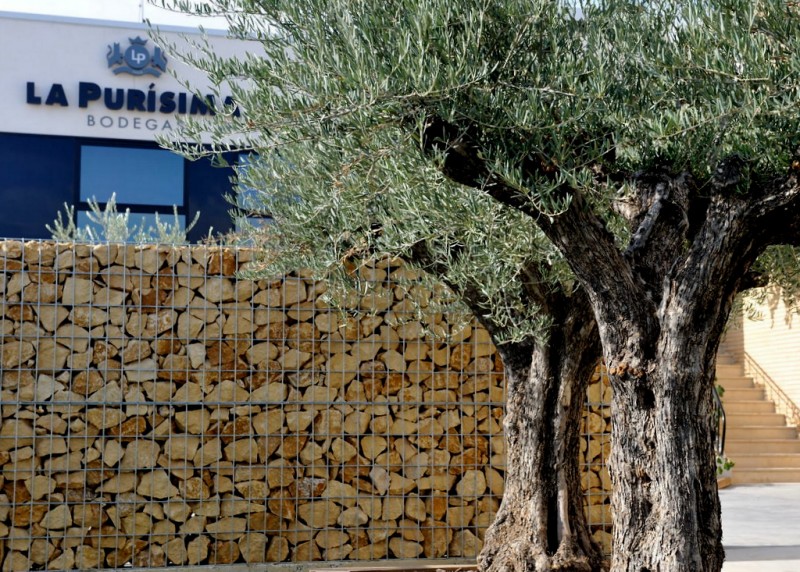 Bodegas La Purísima is one of the largest bodegas in the Region of Murcia and the 800 agriculturalists who grow and produce its wine own 60% of the entire production capacity of the D.O. Yecla. Between them, they cultivate 3,325 hectares of grapes and have vines growing in all corners of the two main grape growing areas of Yecla; Campo Arriba and Campo Bajo.
Bodegas La Purísima is one of the largest bodegas in the Region of Murcia and the 800 agriculturalists who grow and produce its wine own 60% of the entire production capacity of the D.O. Yecla. Between them, they cultivate 3,325 hectares of grapes and have vines growing in all corners of the two main grape growing areas of Yecla; Campo Arriba and Campo Bajo.
The most widely grown vine is Monastrell and Bodegas La Purísima includes more than 100 hectares of Monastrell Pie Franco vines, which are ungrafted stock, on its land. Many of these are very old and, although yielding lower volumes, produce an intense wine with a deep-rooted character to match the depth to which the roots of these vines grow.
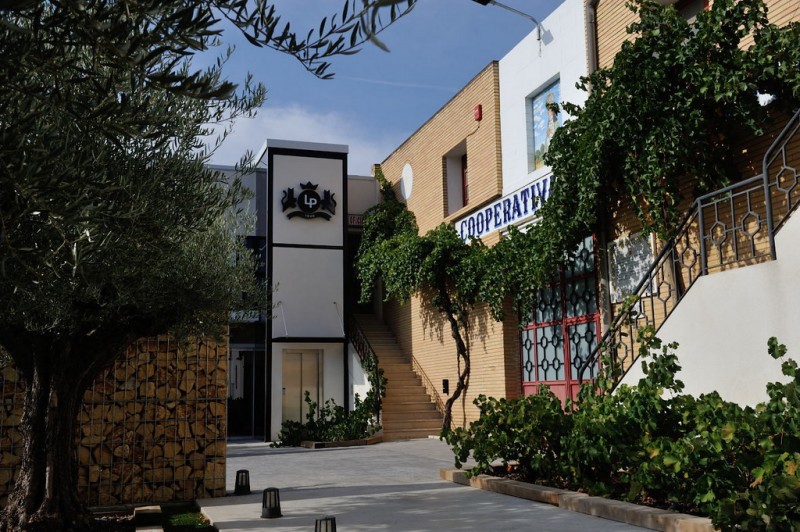
Pie Franco are the great survivors of Spanish wine and have become synonymous with products from Murcia, having survived the Europe-wide infestation which caused a major crisis in wine production in the 19th century. In 1863 an insect called Phylloxera was accidentally imported into Europe, first arriving in London before spreading throughout the continent, devastating vineyards as it went. By 1868 Phylloxera had been found in a vineyard in Bordeaux, and the plague reached Portugal in 1871, Germany in 1874, Italy in 1879 and Spain in 1878. No pesticides could halt it as the larvae attacked roots before the fully-grown insect ate the leaves.
It was eventually discovered that American vine roots were resistant to Phylloxera, and after experiments to graft American roots onto European plants proved effective the technique was adopted almost everywhere in Europe.
But in a few areas of Spain, where vines were grown in calcareous soils, Phylloxera was unable to penetrate the surface and attack the roots, and in these areas the grafting process was not necessary. Yecla, along with neighbouring D.O Jumilla, was one of these areas, and as a result the old “European Root” variety of the Monastrell grape survived.
Today, Monastrell is the most important product in Yecla although other varieties are also cultivated., including Airén, Tempranillo, Merlot, Cabernet Sauvignon and Syrah.
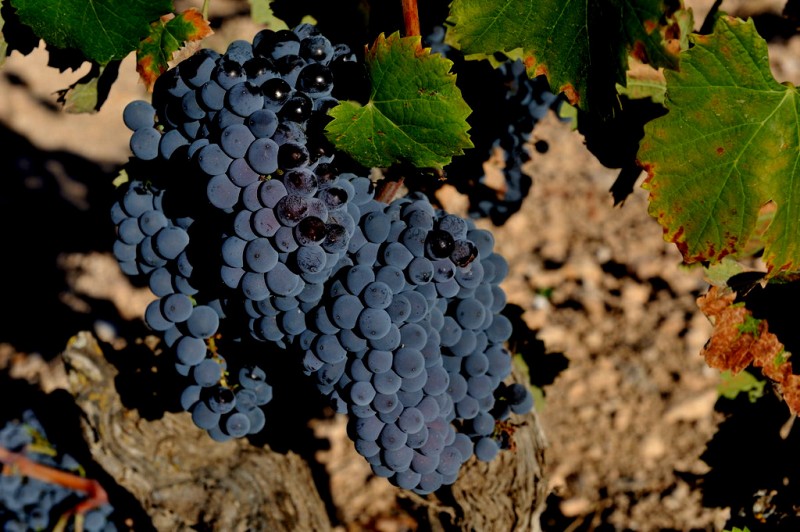
Bodegas La Purísima can produce 9 to 10 million litres of wine a year, although this naturally depends on the yield, which in turn is affected by the climatic conditions of each season. Temperatures in the vineyards can drop to as low as -6ºC during the winter and peak at 40ºC during summer, receiving relatively little rainfall (between 250 and 350 millimetres annually).
Vineyards in the DO Yecla range from 400 to 800 metres above sea level. Campo Arriba (the high countryside) lies at between 700 and 800 metres above sea level, the soil 80% limestone, 5% sand and 15% clay, whereas Campo Abajo is between 400 and 500 metres, with a soil mix of 30% limestone, 5% sand and 65% clay.
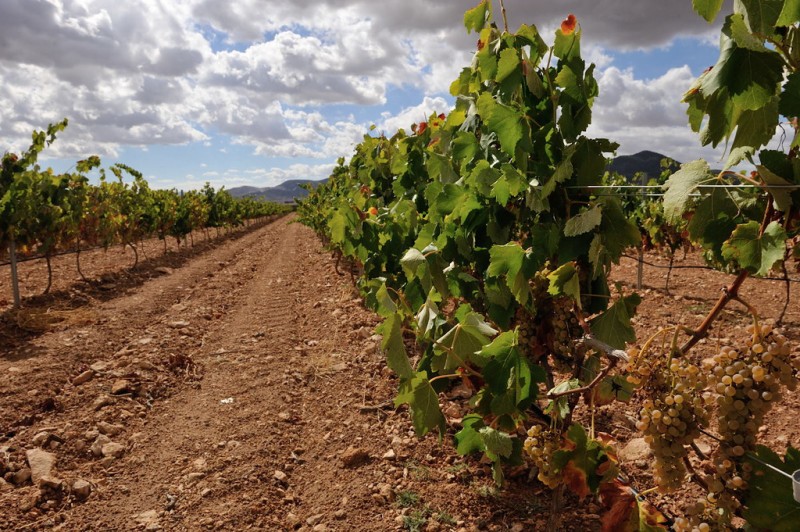
This offers the bodegas a diversity of conditions, enabling them to cope with acts of nature such as hail or torrential rain, and every plot is carefully mapped, controlled and the grapes subjected to tight quality and sugar level monitoring in order to plan production and obtain maximum quality.
The premium grapes are selected for harvest into small crates and brought into the bodega to be stored in controlled conditions for further hand sorting, others for bulk wines are harvested directly by machine into trailers and lorries, and others are harvested at night so that they can be brought in for processing in cooler conditions, everything depends on the variety, quality and wine for which each parcel is destined.
Bodega La Purísima was founded in 1946 and the first members worked to pool their resources and invest in the future until D.O. status was awarded to Yecla in 1975.
The numbers of members grew, as did the premises and investment into equipment and personnel, and today Bodegas La Purísima exports 95% of the wine it produces to more than 30 countries.
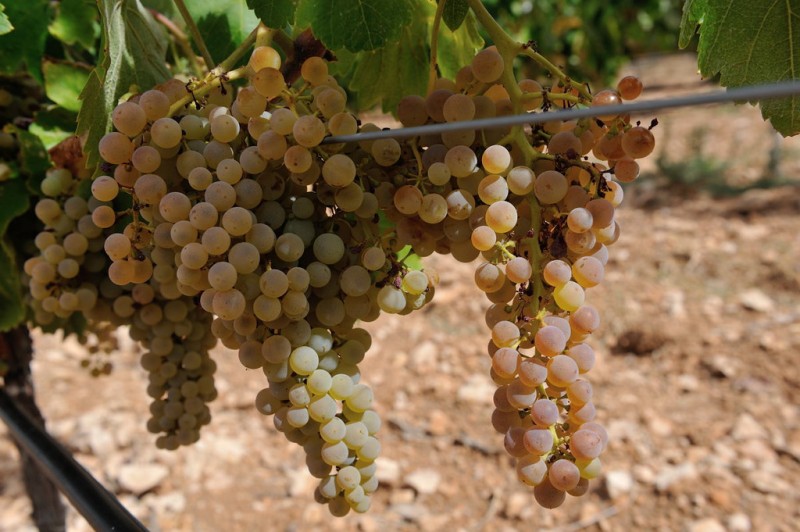
The wines of La Purísima
Full details of the wines currently produced can be found at the company's webiste in English here.
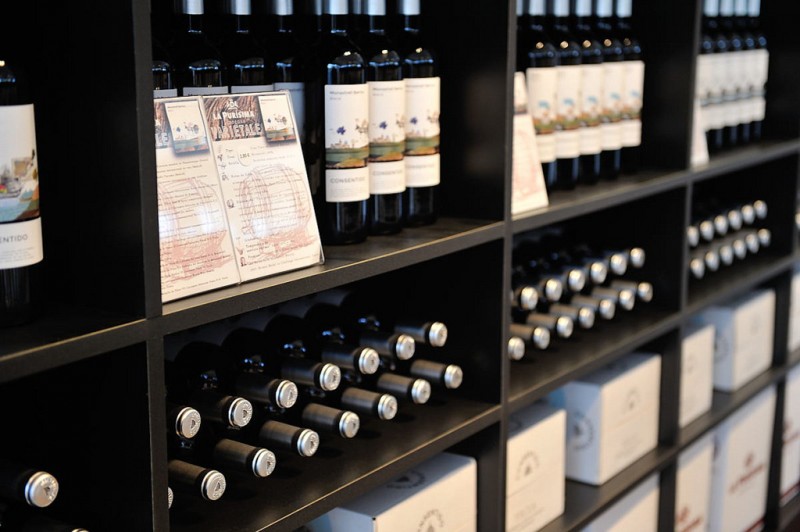
Wine shop
The winery has its own retail wine sales shop on the premises on the RM-404 just north of Yecla, selling a wide range of products in bottles, boxed or straight from the barrel, depending on the wine.
There is something here to suit all budgets, including wines which have won major prizes and offer exceptional value for money.
Gift boxes are also available and special gift packs can be compiled and created for special events/anniversaries etc or as gifts for clients.
The shop also sells local Virgin and Extra Virgin Olive Oil as well as other local products including Libricos, the traditional wafer biscuits which are synonymous with the name of the municipality.
The shop is open hroughout the year but customers are encouraged to purchase online here.
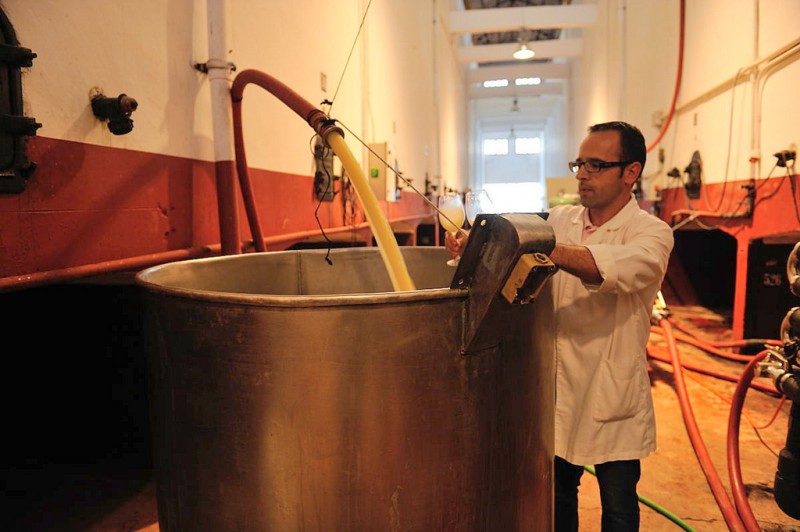
WINE TOURS
Its central town location makes this bodega one an easy one to visit and tours of its installations are by appointment in both English and Spanish.
Tours last approximately one and a half hours and cost 10 euros a head, which includes sampling of two wines and a full explanation of the complete process of wine production.
To book, call 968 751257 or email enoturismo@bodegaslapurisima.com
Address: Carreterra de Pinoso, 3, 30510 Yecla (Murcia) Spain
Web: www.bodegaslapurisima.com
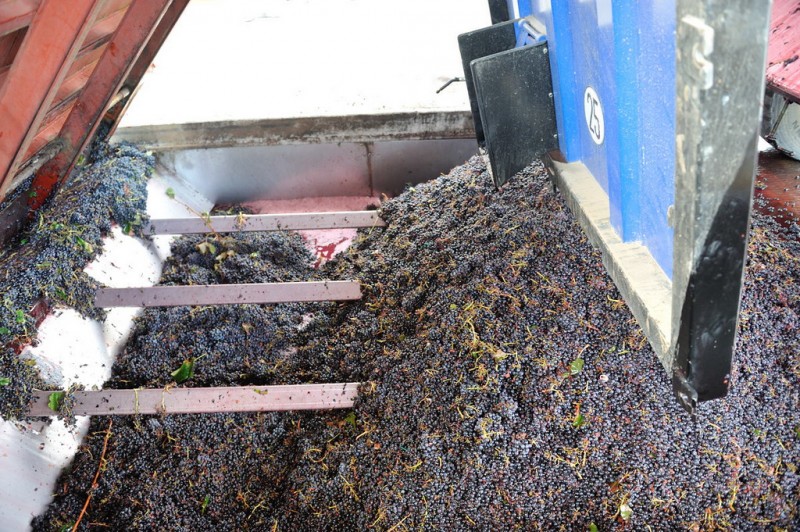
Further information can also be found at www.rutadelvinoyecla.com.
If visiting Yecla don’t forget to make sure your first port of call is the tourist office (Plaza Mayor, 1, telephone 968 754104, email turismo@yecla.es).
For more local events, news and visiting information go to the home page of Yecla Today.